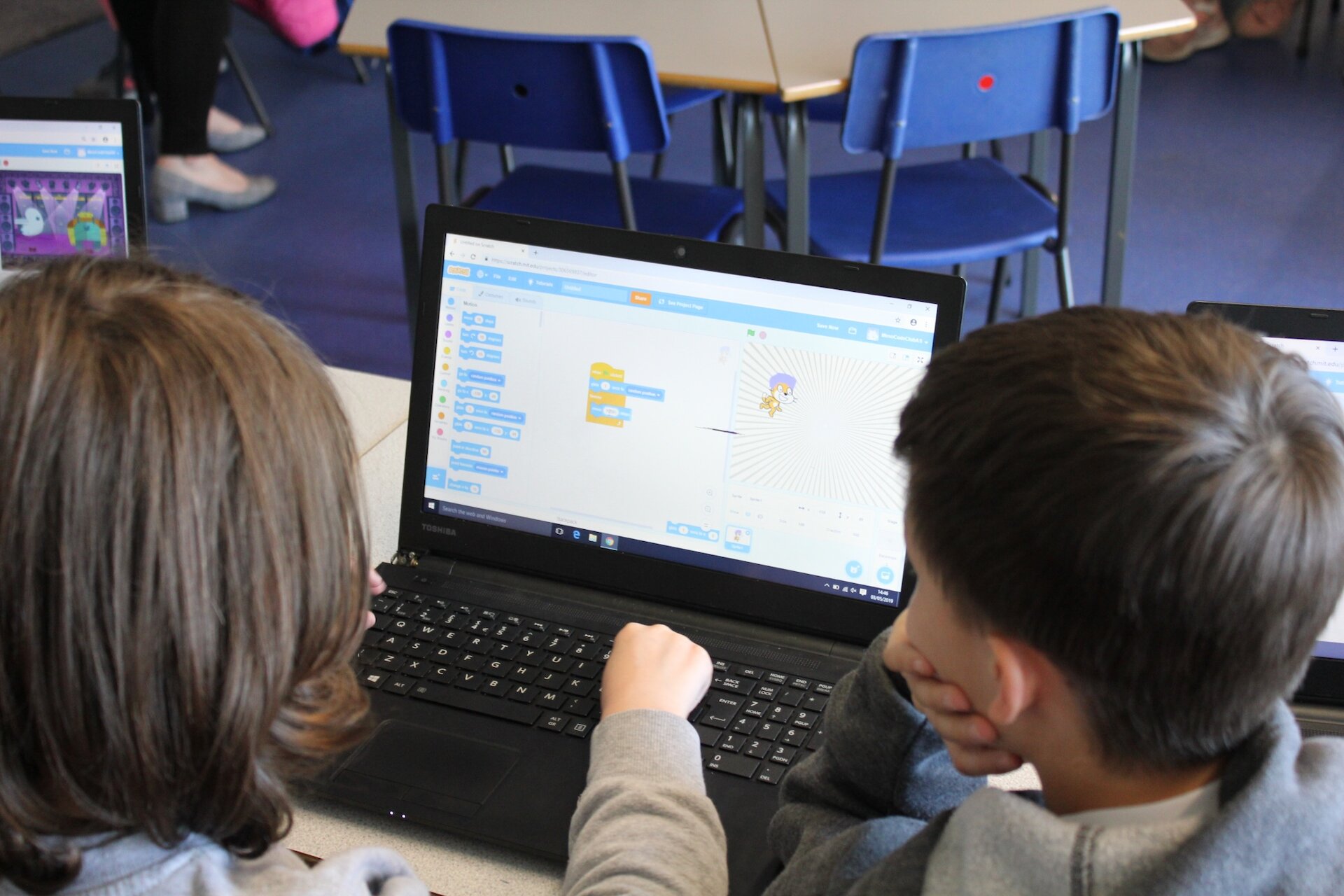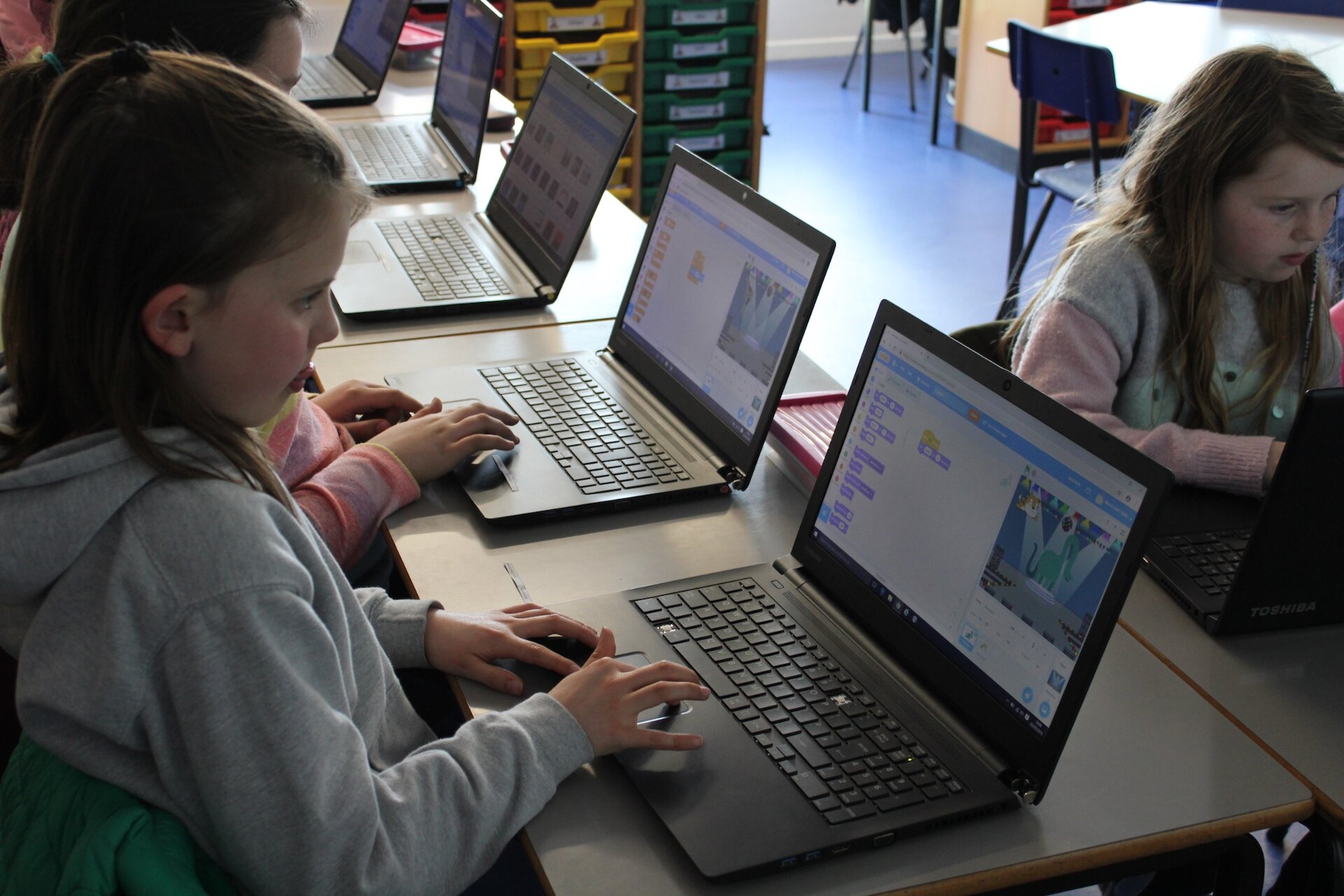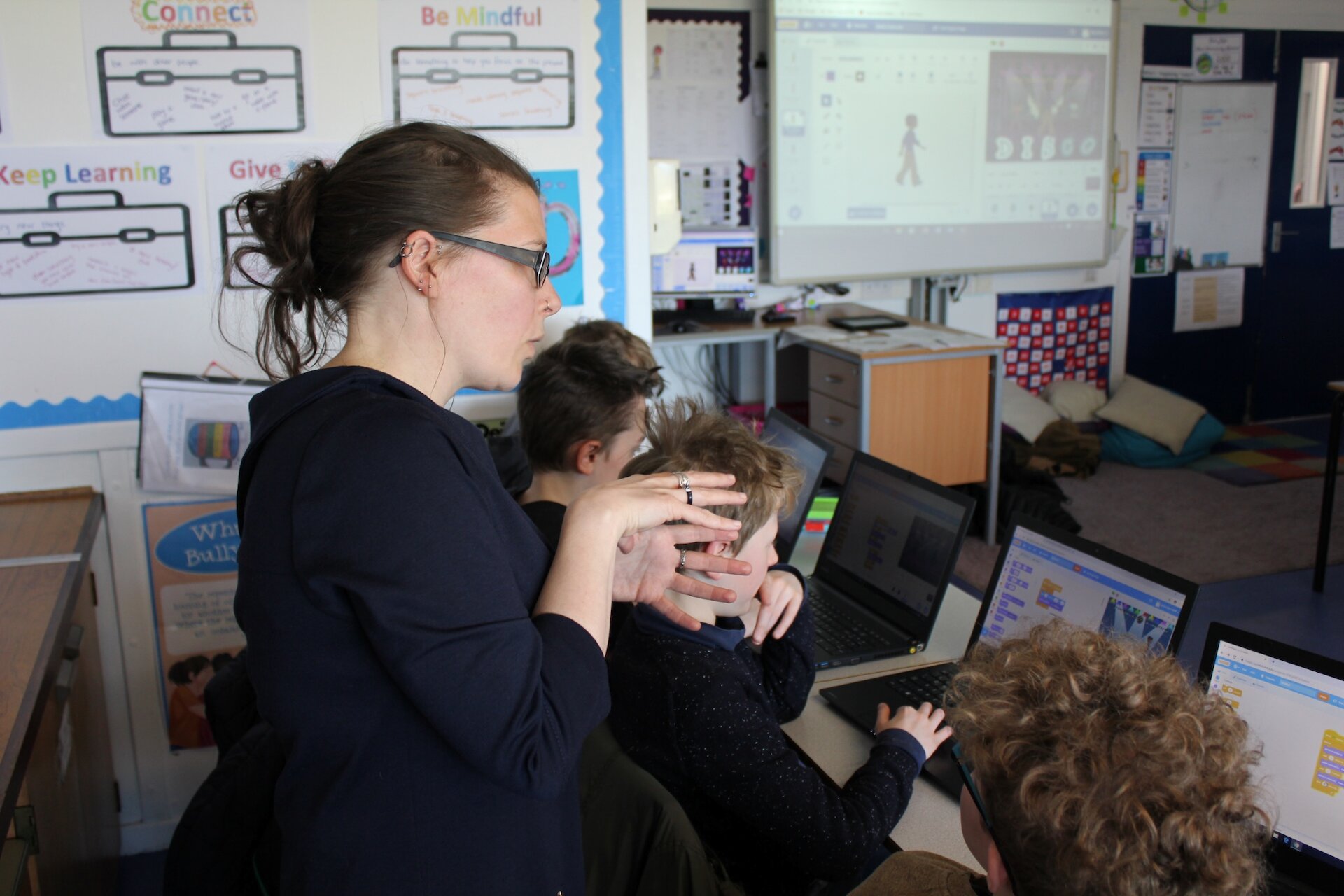The changing face of industry presents a number of challenges for the next generation. Many sectors will see a decline, while technological sectors will thrive. It’s never been more important for young people, and their parents, to embrace this change and start learning the skills that will help them in the careers of the future.
Children in Shetland are no exception, with opportunities abound to learn the skills that will set them up for the jobs that will be in demand in the future, especially computer programming and software development.
Code Club
Local software development firm Mesomorphic Ltd is leading the way with their innovative Code Club programme for schools. The idea is simple: Mesomorphic’s staff go in and deliver a six-week block of basic computer coding lessons during school time, engaging the children while training and empowering the adults at the same time. Then, Mesomorphic are able to step back and support from afar, as the school staff continue running the club with minimal input.
Maria Bell, Mesomorphic’s managing director, explained that while the project is providing primary-school age children with increasingly valuable skills, it’s also a long-term investment for the company:
“I guess you could argue it’s the world’s slowest recruitment plan,” Maria said, “encouraging children at a young age to start thinking outside the traditional roles you’d associate with people who enjoy maths, science, those types of things. The skills you’d learn with that, and analytical thinking, are actually quite prevalent in software development and the rest of the tech industry.
“It’s not really something that’s addressed a lot in school- and it’s great we’re now seeing schools become involved a lot in teaching Scratch and Thonny and using different tools online. But we’re using this as an opportunity to go in and just engage children at a younger age. We’re going for primary schools right through to secondary, and we’re forming links with Shetland College as well.


